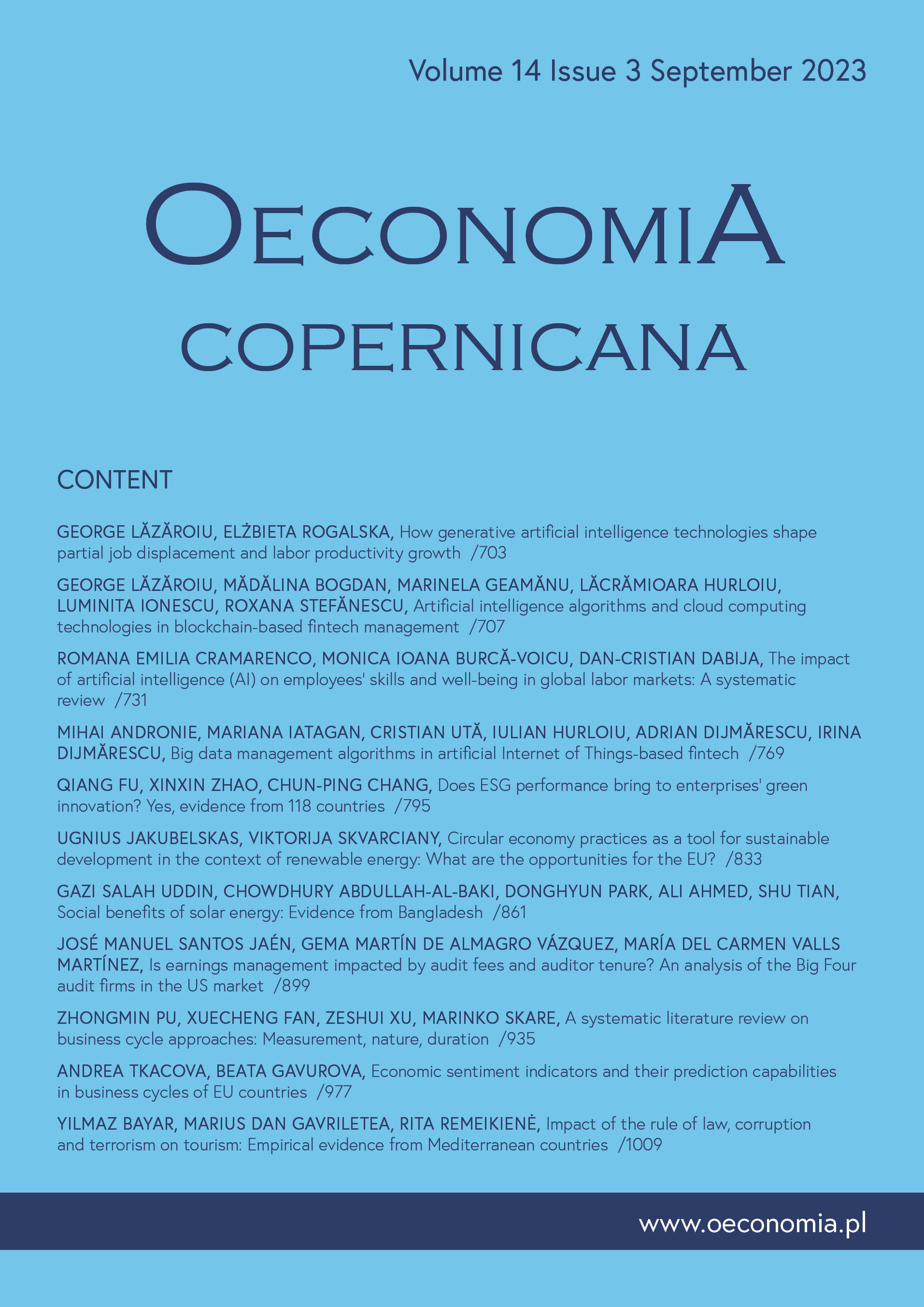Circular economy practices as a tool for sustainable development in the context of renewable energy: What are the opportunities for the EU?
Circular economy practices as a tool for sustainable development in the context of renewable energy: What are the opportunities for the EU?
Author(s): Ugnius Jakubelskas, Viktorija SkvarcianySubject(s): Energy and Environmental Studies, Environmental and Energy policy, Social development, Economic development, Environmental interactions, Socio-Economic Research
Published by: Instytut Badań Gospodarczych
Keywords: circular economy; sustainable development; renewable energy;
Summary/Abstract: Research background: In order to tackle climate change and ensure Paris agreements are met, countries are forced to look for alternative ways of producing, consuming, and wasting and adopt a circular economy. Reduction of greenhouse gas emissions becomes one of the key elements. The demand for electricity is increasing, and most greenhouse gas emissions derive from the energy sector. Because of that, it is crucial to ensure the transition from fossil fuels to renewable energy. Renewable energy, as a part of the circular economy, also contributes to sustainable development. Only the efficient implementation of circular economy and renewable energy practices can ensure that sustainable development goals are achieved.Purpose of the article: The study aims at determining the efficiency of European Union countries implementing circular economy practices through renewable energy to attain SDGs. The study focuses on the significance of renewable energy as a tool for the circular economy to achieve sustainable development and highlights the progress achieved in SDG through renewable energy in the EU.Methods: For efficiency assessment of the circular economy represented by the renewable energy indicators, data envelopment analysis (DEA) was performed.Findings & value added: This study presents a relation analysis of the circular economy and renewable energy and the importance of efficiency in achieving SDGs through a circular economy. The study helps to understand the circular economy represented by renewable energy and how it transforms into sustainable development and contributes to necessary actions needed for countries to improve. Based on the results, Sweden, Luxembourg, Ireland, Latvia, Estonia, Malta, the Netherlands and Bulgaria are considered the most efficient countries, while Austria is the least efficient. Unused solar and wind power potential can slow down sustainable development; however, EU programs and renewable energy strategies help countries move towards clean energy and ensure efficient implementation of sustainable development goals.
Journal: Oeconomia Copernicana
- Issue Year: 14/2023
- Issue No: 3
- Page Range: 833-859
- Page Count: 27
- Language: English

